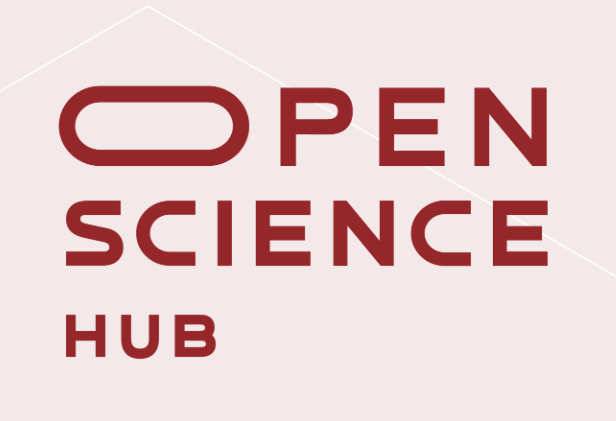
Developing an Open Science Hub: Fostering Global Collaboration and Innovation
Developing an Open Science Hub: Fostering Global Collaboration and Innovation https://opusproject.eu/wp-content/uploads/2023/08/bvbvcvb.png 616 421 Open and Universal Science (OPUS) Project Open and Universal Science (OPUS) Project https://opusproject.eu/wp-content/uploads/2023/08/bvbvcvb.pngOpen science embodies the principles of transparency, collaboration, and accessibility in research, enabling the global scientific community to work together for the betterment of humanity. As part of this movement, the development of open science hubs around the world has emerged as a pivotal strategy to facilitate information exchange, foster interdisciplinary collaboration, and accelerate the pace of scientific discovery.
The Essence of Open Science Hubs
Open science hubs serve as epicenters for the cultivation of transparent, inclusive, and collaborative research practices. These hubs facilitate the sharing of research findings, data, and methodologies, enabling scientists, researchers, and the public to engage in informed discussions and contribute to the growth of knowledge. The core attributes of open science hubs include:
- Data Accessibility: Open science hubs prioritize making research data openly accessible to the public. This practice not only promotes transparency but also encourages researchers to verify and build upon existing findings.
- Collaboration: These hubs serve as platforms where researchers from various disciplines can come together, fostering cross-pollination of ideas that can lead to innovative breakthroughs.
- Interdisciplinary Approach: Open science hubs encourage collaboration beyond traditional academic boundaries, allowing experts from diverse fields to collaborate on complex challenges.
- Transparency and Reproducibility: By making research methodologies and results available, open science hubs enhance the reproducibility of research, thereby strengthening the reliability of scientific findings.
Benefits of Open Science Hubs
The establishment and development of open science hubs offer numerous benefits to the global scientific community and society at large:
- Accelerated Discovery: Open science hubs expedite the dissemination of knowledge, enabling researchers to build upon existing work, ultimately accelerating the pace of discovery.
- Global Collaboration: These hubs facilitate international collaboration, breaking down geographical barriers and allowing researchers from different parts of the world to contribute their expertise.
- Addressing Global Challenges: Open science hubs are well-suited to tackle complex, global challenges such as climate change, pandemics, and sustainable development. The collaborative nature of these hubs allows for comprehensive approaches to these issues.
- Innovation and Creativity: The cross-disciplinary interactions in open science hubs often lead to innovative solutions that might not have been realized within the confines of traditional research silos.
- Public Engagement: Open science hubs engage the general public by making scientific knowledge accessible and understandable, fostering a scientifically literate society.
Challenges and the Path Forward
While the concept of open science hubs holds immense promise, several challenges must be navigated to ensure their effective development and functioning:
- Cultural Shift: The transition from traditional research practices to open science requires a significant cultural shift within the academic community. Researchers must embrace the idea of sharing data and methodologies openly.
- Data Privacy and Security: Open science hubs must find ways to balance data accessibility with privacy and security concerns, particularly when dealing with sensitive information.
- Funding and Sustainability: Ensuring the long-term sustainability of open science hubs requires securing funding, developing viable business models, and garnering institutional support.
- Technological Infrastructure: Robust technological infrastructure is essential to support the storage, sharing, and analysis of vast amounts of research data.
- Intellectual Property Concerns: The balance between open access and protecting intellectual property rights is an ongoing challenge that open science hubs must navigate.
To overcome these challenges, a collaborative effort involving researchers, institutions, governments, and funding bodies is essential. The following steps can guide the development of open science hubs:
- Policy Support: Governments and institutions should formulate policies that promote open science practices, including data sharing and collaboration.
- Capacity Building: Investing in training and capacity-building programs can help researchers adopt open science practices effectively.
- Infrastructure Development: Establishing the necessary technological infrastructure for data storage, sharing, and analysis is critical.
- Public Awareness: Educating the public about the importance of open science can garner support and create a demand for transparent research practices.
Conclusion
The development of open science hubs marks a pivotal moment in the evolution of the scientific landscape. By fostering collaboration, transparency, and accessibility, these hubs hold the potential to revolutionize research practices, drive innovation, and address pressing global challenges. While challenges exist, the collective commitment of the global scientific community to embrace open science principles can pave the way for a future where knowledge knows no boundaries and where the pursuit of understanding benefits all of humanity.
Photo: Open Science Hub
- Posted In:
- Open Science News




